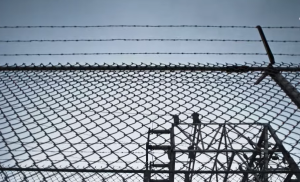Photos: YouTube Screenshots
Every day in courtrooms around the country, judges decide whether to release, detain, or set bail for people charged with crimes. Bail involves a commitment or set of conditions to ensure the person will appear for their next court date.

For many, those conditions include an amount of money that is often beyond their ability to pay. As a result, despite the presumption of innocence until proven guilty, hundreds of thousands of people are held for months or even years pending trial because they can’t afford bail. Evidence shows that this unfair system is ineffective at advancing public safety, as people who can afford bail can simply pay to be released, regardless of any risk they may pose.
But efforts at reform often run into challenges, as we highlight in a new report. One reason is lobbying by a for-profit industry, whose revenue of about $2 billion a year depends on people being unable to afford to pay bail upfront. The United States is only one of two countries (the other is the Philippines) where the profit motive dominates the legal system in this way. The pretrial release system in the United States exhibits glaring racial disparities, with Black and Latino populations facing greater rates of pretrial incarceration as well as higher bails set. Subsequently, commercial bail fees largely siphon money from communities of color. READ MORE…







